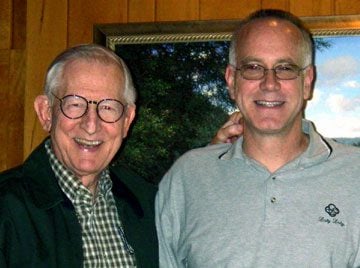As Mitt Romney’s march toward the Republican presidential nomination seems almost inevitable, we’re hearing more and more about the discomfort of evangelical Christians with Romney’s Mormonism. Much of what I’ve read or heard on the news seems to be shallow. Often, it misunderstands evangelicals and their thinking.
 An exception to this tendency appeared recently in the New York Times, in the article “The Theological Differences Behind Evangelical Unease With Romney” by Laurie Goodstein. Her article demonstrates a solid grasp of evangelical thought, as well as the Mormon beliefs that evangelical find untenable. Goodstein also rightly recognizes diversity within the evangelical world when it comes to Romney and Mormonism.
An exception to this tendency appeared recently in the New York Times, in the article “The Theological Differences Behind Evangelical Unease With Romney” by Laurie Goodstein. Her article demonstrates a solid grasp of evangelical thought, as well as the Mormon beliefs that evangelical find untenable. Goodstein also rightly recognizes diversity within the evangelical world when it comes to Romney and Mormonism.
The theological issues at stake are not minor ones. As Goodstein explains:
Mormons consider themselves Christians — as denoted in the church’s name, the Church of Jesus Christ of Latter-day Saints. Yet the theological differences between Mormonism and traditional Christianity are so fundamental, experts in both say, that they encompass the very understanding of God and Jesus, what counts as Scripture and what happens when people die.
In fact, perhaps the greatest difference between orthodox Christian theology and Mormon theology has to do with the very nature of God:
On the most fundamental issue, traditional Christians believe in the Trinity: that God is the Father, the Son and the Holy Spirit all rolled into one.
Mormons reject this as a non-biblical creed that emerged in the fourth and fifth centuries. They believe that God the Father and Jesus are separate physical beings, and that God has a wife whom they call Heavenly Mother.
Mormons also believe that God is much more like a human being and that humans have the potential to become gods:
It is the blurring of the lines between God, Jesus and human beings that is hard for evangelicals to swallow, said Richard J. Mouw, president of Fuller Theological Seminary, an evangelical school in Pasadena, Calif., who has been involved in a dialogue group between evangelicals and Mormons for 12 years and has a deep understanding of theology as Mormons see it.
“Both Christians and Jews, on the basis of our common Scriptures, we’d all agree that God is God and we are not,” Mr. Mouw said. “There’s a huge ontological gap between the Creator and the creature. So any religious perspective that reduces that gap, you think, oh, wow, that could never be called Christian.”
There is much more in Goodstein’s article. It’s well worth reading, whether you’re a Romney supporter, a Romney critic, or someone who has yet to make up your mind. In the days ahead, it will be important for us to understand what is distinctive about Mormonism, not only as it relates to the election, but also so that we might better understand this crucial segment of our citizenry.










